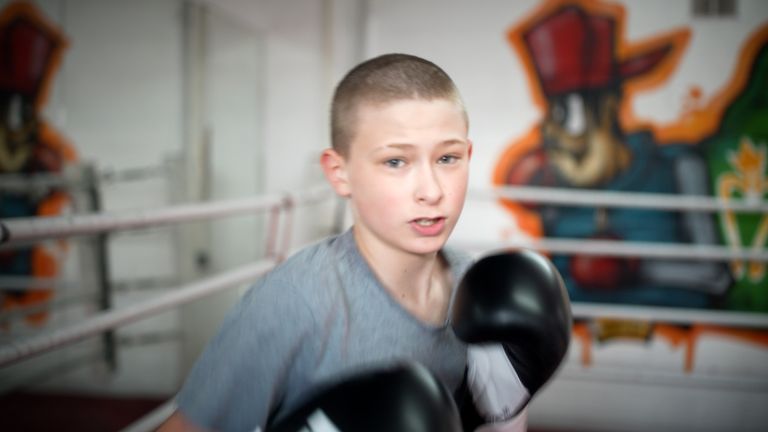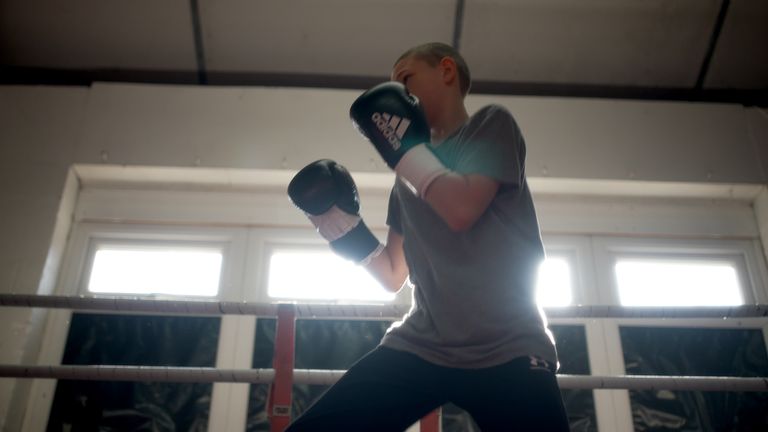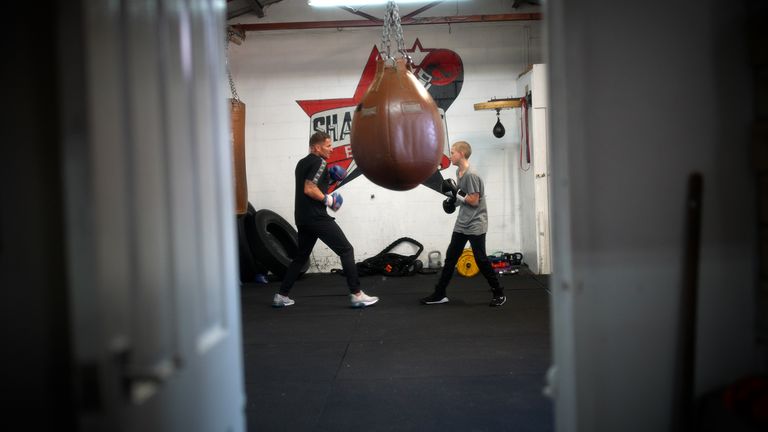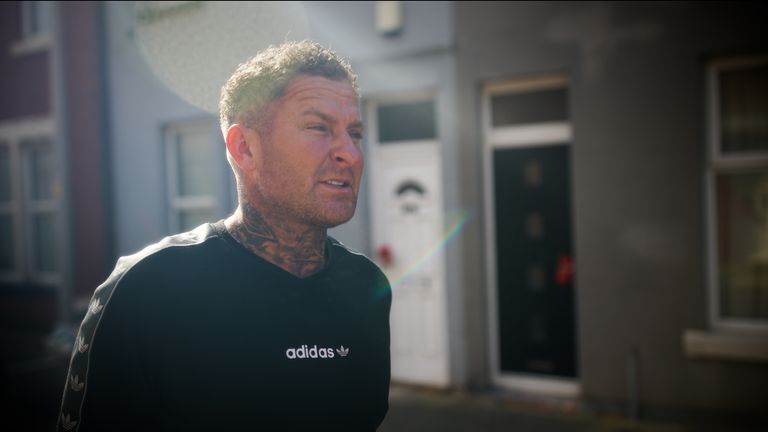
Charlie has been to school for just a handful of days in the past three years.
Each morning, his school uniform is placed at the end of his bed by his nan, Teresa.
And each morning Charlie refuses to put it on.
“I don’t like the people, the teachers, the classes or the uniform,” he tells me.
I’ve come to meet 13-year-old Charlie, who lives with his nan and father James in Blackpool, to try to understand why he is missing so much school and what is being done about it.
Charlie is bright and friendly, with a huge passion for boxing, training regularly at a local gym.
“I think COVID has a lot to do with this,” says Teresa.
“He didn’t want to go back after COVID. He was asking why he couldn’t continue learning at home on his computer. I said everyone is getting back to normal.”
An urgent national crisis
Charlie is not alone.
Since the pandemic, tens of thousands of children have not returned to school. It’s an urgent national crisis.
And witnessing Charlie’s refusal takes us to the heart of that crisis.
The latest figures from the Department for Education show that more than 125,000 children were out of school more than in school for the first term of this academic year. That is double the number before the pandemic.
To see what is being done about it, Sky News has been given rare access to a special unit whose job it is to make sure children are in school.
The Pupil Welfare Service, run by Blackpool Council, works with children who have attendance problems to get them into class.
Natasha Armstead, who manages the service, says demand is high.
“I’ve worked for the council in this area for 23 years now, and this is literally the busiest we’ve ever been,” said Natasha.
“We have done just over 5,000 family home visits since September just to address the attendance issue.
“If we can get families talking to us and start to understand the challenges they are facing then we can start to help and make a difference to the child’s attendance at school.”
The service has worked with Charlie – liaising with school to arrange a reduced timetable, learning in isolation – steps to coax him back through the gates.
The Pupil Welfare Officer working with him says when he’s at school he is well behaved and has lots of friends.
The law says all school-age children must receive a formal education whether at school, home school, or an alternative provision. But attendance is mandatory.
If children do not go to school their parents can be fined or face up to three months in prison.
Already fined thousands of pounds
Charlie’s dad James has already been fined thousands of pounds because his son has missed so much school.
He says he has tried everything, but adds that he believes the curriculum fails to inspire his son, who has ambitions to be a professional boxer.
“The way he looks at it, he’s doing lessons that he doesn’t need for his future plans,” said James.
“And I do agree with that. I think people should be pushed really into what they really want to do, not just sitting down learning science or whatever that they don’t need for their future.”
James says he worries the next time he will get more than a fine.
‘Next step… prison’
“I think the next step from what I’ve been told is behind bars. Prison. If it means he doesn’t have to put himself through all this trauma then so be it. My son comes first.”
Last year, more than 16,000 parents were fined an average of £250 for their children missing school.
The government says it is trying to address the issue piloting so-called attendance hubs and mentors in the worst affected areas.
Poverty is one of the main causes of low attendance. Three times as many children receiving free school meals are absent from school than those who don’t get them.
And children with special educational needs and disabilities are also more likely to miss school than other children – 400,000 persistently absent children have a special educational need.
Read more:
Absence in schools is now at crisis point. This is Teddy’s story
The ‘ghost children’ crisis explained
But an emerging issue is mental health and anxiety, says Natasha from Blackpool’s Pupil Welfare Service.
“I think being shut in a bedroom for a couple of years and then trying to get back out again and get back into the systems has been a massive change of habit,” she says.
“There was loss of social skills with loss of confidence. There’s some anxiety and some of it has crept beyond anxiety into mental health issues.”
Click to subscribe to the Sky News Daily wherever you get your podcasts
Charlie gives school another chance
Charlie eventually agrees to go into school and his dad James drives him.
But as the car pulls up to the school gates, Charlie becomes hesitant.
His head falls into his hands.
“I hate it here,” he sobs. “School sucks because I can’t do anything.”
James tries to reassure him and eventually, over the course of half an hour, two teachers try to get Charlie to come in.
But nothing works and his day ends where it began, at home in his bedroom.
Charlie’s story, a snapshot into the lives of thousands of children, struggling with school and falling behind on their education as each days passes.
















